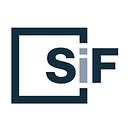Meet the Team: Kevin Ye
Q&A with Silicon Foundry’s Principal
Kevin Ye is a Principal at Silicon Foundry, leading several of the team’s Member relationships, including the Arizona Commerce Authority, Delight Ventures, Southwest Airlines, and UPS Ventures. Prior to joining the team, he was a management consultant with Deloitte, with experience across both traditional business strategy and enterprise technology deployment. He proudly hails from Tennessee and is a big movie buff who keeps a running spreadsheet of every movie he’s seen in his life!
What were you doing prior to joining Foundry?
I was a management consultant with Deloitte in New York City, initially serving clients across multiple industries, but eventually settling within the financial services space. My work spanned several topics during the years I was there, but my time ended up being relatively balanced between both traditional management consulting (i.e., business strategy) and technology consulting (i.e., enterprise software deployment). I’m actually really glad that I was exposed to both of these areas, the former teaching me how to prioritize and think strategically through impactful company problems, and the latter exposing me to the nitty-gritty operational tasks that are required to actually execute technological change at scale. Some highlights of my time there included building the target operating model for a Top 5 global bank’s IT asset program, exploring how to attract more customers to an asset manager’s money market funds, and even developing the investment strategy for a fine art fund (i.e., a fund that buys and holds paintings and art to appreciate in value and sell for profit)!
It was a great job — I was working out of the iconic 30 Rockefeller building in Manhattan (one of my favorite buildings in the city), and I loved the constant travel and the new challenges that each project would bring. Ultimately, however, I decided it was time for a change and wanted to see what life was like outside of Deloitte; I packed my bags and moved to California to join Silicon Foundry as its second external hire.
You were one of Silicon Foundry’s first team members. How has the company changed since you started in 2017?
A bit of a cliché, but it’s true how quickly time flies! It feels like just yesterday I was interviewing in the Angelou conference room, back when our hub space was just an idea — we didn’t have any furniture or even paint on the walls.
It’s been great being on the front lines of Silicon Foundry’s journey — we exist to help our Members grow and work with startups, but we ourselves are a startup and have experienced the growing pains of establishing a young company. And looking back, I am proud of how we’ve grown. Among many things, we’ve more than tripled the size of our team, established a global system of network advisors, and acted as trusted thought partners to over twenty Members across the past two years.
It’s also interesting to reflect and realize that our company hasn’t fundamentally changed at its core since I came onboard. We still operate under the same business model, and our mission is still the same — to be trusted advisors and connectors for our Members on all things innovation. And one of the things that has excited me the most since we started hasn’t really been a change in the company, but rather, an expansion of our scope, as we’ve started to see increased demand for this type of service from entities outside of the Global 2000, including family offices and even regional/national governments. I never expected to get to work with these types of players when I first joined, but it’s immensely exciting and just increases the number of ways we can approach a problem and bring value back to the ecosystem!
What sector or industry trend are you most fascinated by at the moment?
I’ve always been fascinated by consumer product brands, especially those in the beauty and fashion industries. These are spaces where identifying winners is not quite as cut-and-dried as identifying which company’s technology is objectively better or more advanced. It more often depends on the startup’s ability to appeal to the subjective moods of its ever-changing customer base. The consumer brand space is also incredibly competitive, with copycat products constantly popping up and trying to capitalize on the latest trends, whether it’s CBD, clean beauty, etc.
It follows then that the most successful companies will be those that are not only able to predict consumer sentiment and preferences, but also rapidly adapt their businesses to achieve optimal market timing as those very tastes shift. Looking at it from an investor or partner’s lens, trying to find the ‘signal in the noise’ within these spaces essentially asks you to quantify the unquantifiable, that of understanding with confidence what consumers want at a given point in time, and how they’ll respond to a company’s brand or product strategy. This is a unique challenge that I love to constantly think about and aim to implement in a more objective fashion.
If you weren’t in this line of work, what would you be doing?
If I had the talent for it, I’d love to be in one of the big entertainment industries, either making movies, drawing comics, or singing professionally. I’ve been such an avid consumer of all these mediums throughout my life, and after realizing how much joy they bring me, I’ve always had a dream of being able to bring a similar experience to others. However, as they say, “God doesn’t give with both hands,” and it seems like my talent lies in business and innovation instead.
